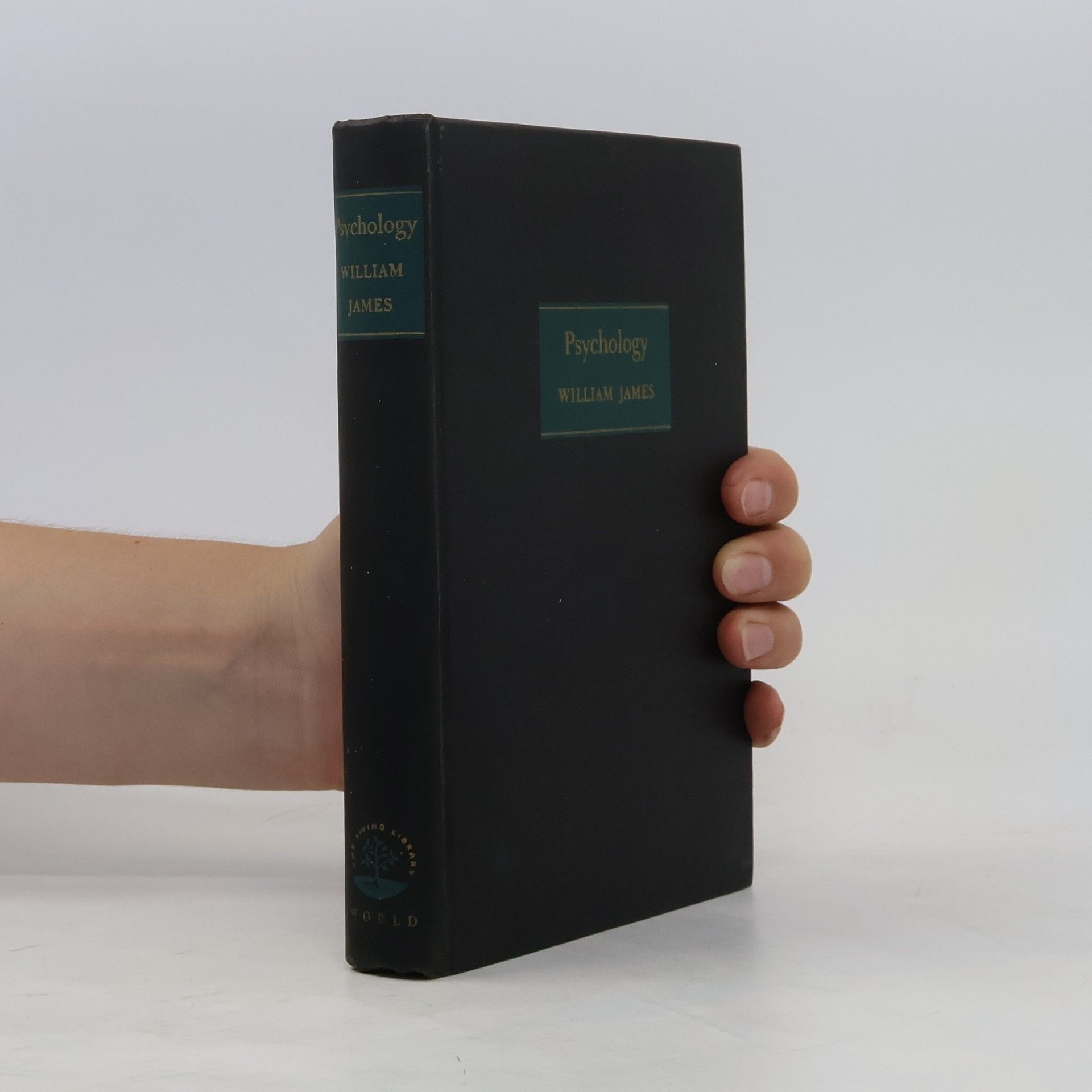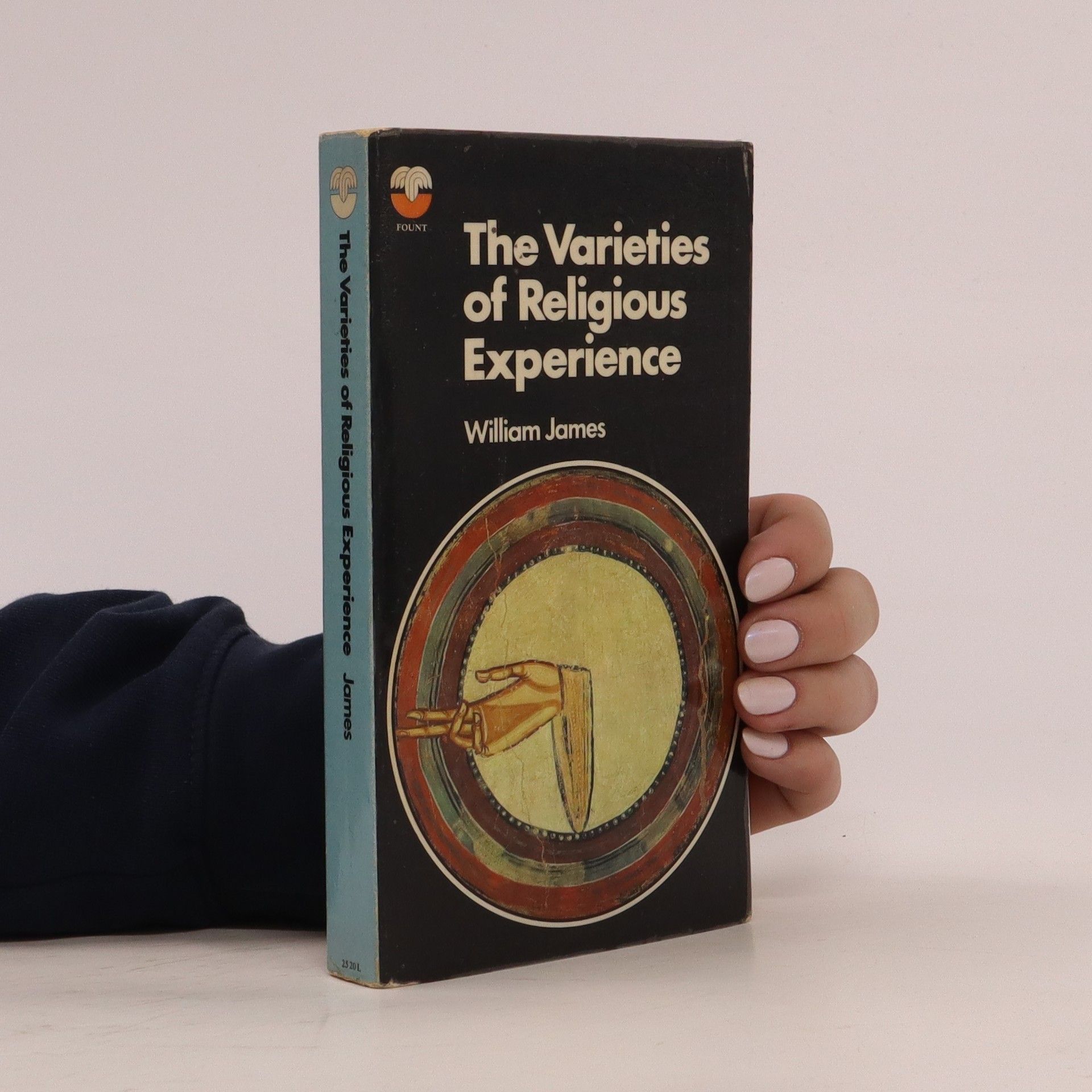Presents two works of political philosophy: Nicolò Machiavelli's "The Prince" and Thomas Hobbes's "Leviathan," and includes biographical introductions
William James Libros

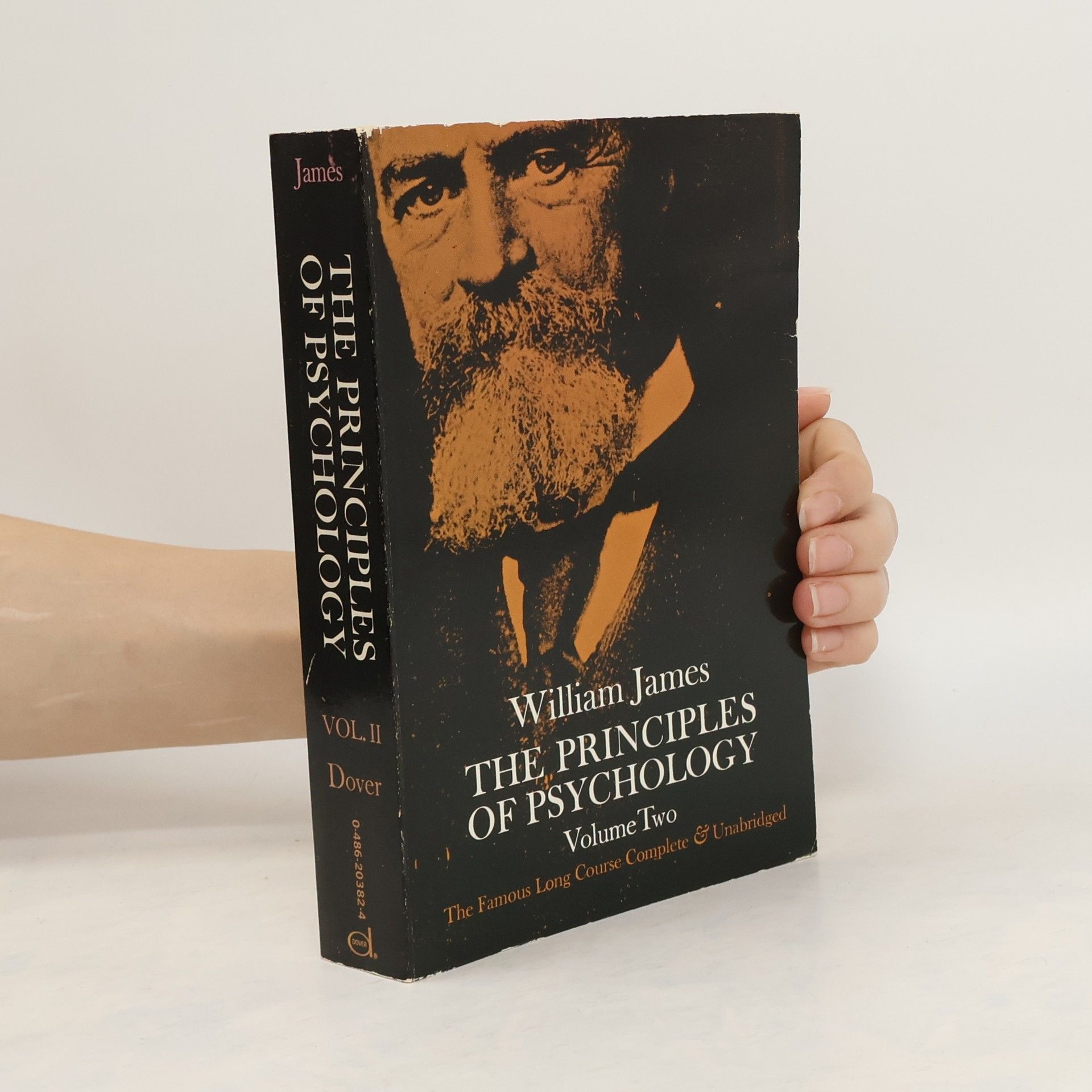
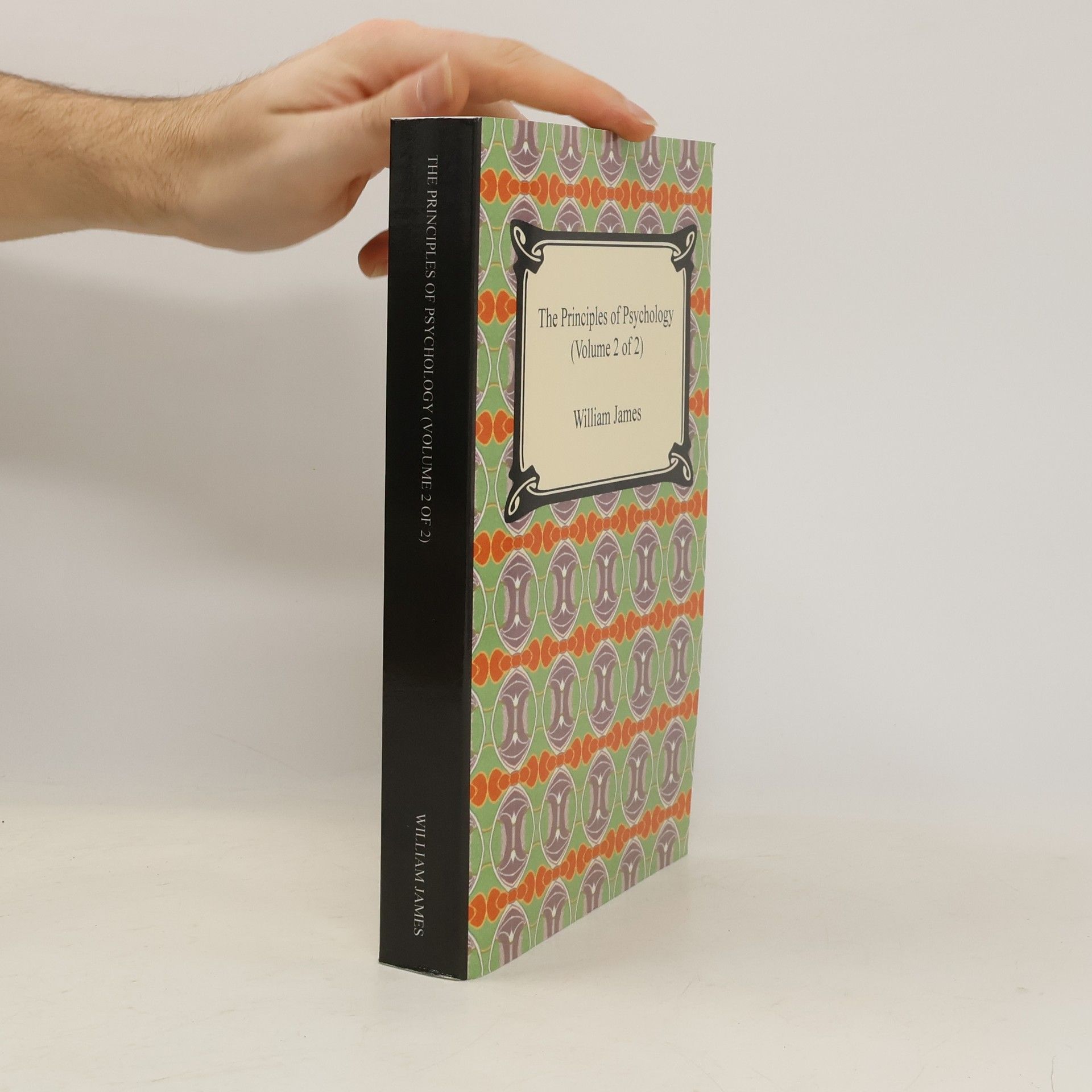


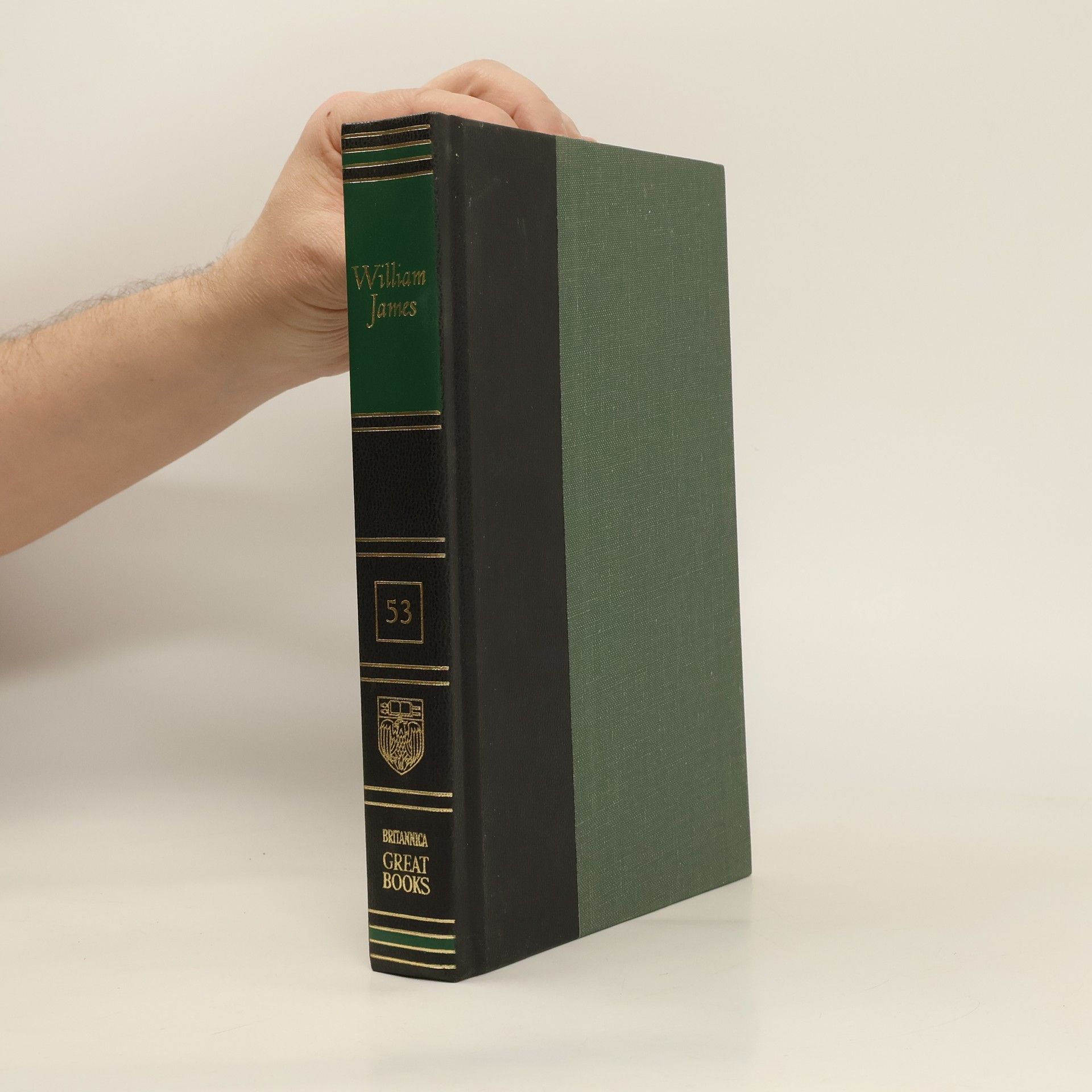
Focusing on the subjective nature of religious experience, this treatise explores the psychological aspects of belief in a transcendent reality, whether conceived as God or a higher spiritual force. Originally presented in the Gifford Lectures at Edinburgh University, it offers a comprehensive overview of the religious imagination, transcending specific creeds and theologies. Its insights remain relevant across various religious contexts, including Christianity, Judaism, Islam, Buddhism, and New Age beliefs, making it a timeless study in the psychology of faith.
The Will to Believe and Other Essays in Popular Philosophy and Human Immortality
- 348 páginas
- 13 horas de lectura
Exploring philosophical themes, this unabridged edition features a collection of essays that delve into belief, the value of life, rationality, and the interplay between determinism and morality. It examines the influence of great individuals and their environments, alongside reflections on Hegel's ideas and the achievements of physical research. A comprehensive index enhances accessibility, making it a valuable resource for those interested in philosophical discourse and the complexities of human thought.
The Principles of Psychology
- 463 páginas
- 17 horas de lectura
Brother of novelist Henry James and godson of eminent philosopher, essayist and poet Ralph Waldo Emerson, William James earned his own reputation for the monumental contributions he made in the field of Psychology. Here is the second volume of James' two part "Principles of Psychology," a textbook which took James twelve years to complete, and which is still prevalent in contemporary psychology texts. James' writings were influenced by Charles Darwin's ideas about adaptive evolutionary change, philosophical pragmatism, and various German psychologists who focused on the study of psychological processes. These two volumes delve into James' assumption that developmental processes involve an interaction of nature and nurture, a view that almost all contemporary developmental psychologists hold. His fundamental theories on brain processes and abstract thought, behavioral tendencies and states of consciousness, all of which he presented a decade before Sigmund Freud, have become integral to the framework of modern social psychology.
This is the first inexpensive edition of the complete Long Course in Principles of Psychology, one of the great classics of modern Western literature and science and the source of the ripest thoughts of America’s most important philosopher. As such, it should not be confused with the many abridgements that omit key sections. The book presents lucid descriptions of human mental activity, with detailed considerations of the stream of thought, consciousness, time perception, memory, imagination, emotions, reason, abnormal phenomena, and similar topics. In its course it takes into account the work of Berkeley, Binet, Bradley, Darwin, Descartes, Fechner, Galton, Green, Helmholtz, Herbart, Hume, Janet, Kant, Lange, Lotze, Locke, Mill, Royce, Schopenhauer, Spinoza, Wundt, and scores of others. It examines contrasting interpretations of mental phenomena, treating introspective analysis, philosophical interpretations, and experimental research. Although the book originally appeared nearly 75 years ago, it remains unsurpassed today as a brilliantly written survey of William James’ timeless view of psychology.
The Will to Believe. Human Immortality
- 402 páginas
- 15 horas de lectura
The work of William James contributed greatly to the burgeoning fields of psychology, particularly in the areas of education, religion, mysticism and pragmatism. The brother of novelist Henry James and of diarist Alice James, William wrote several powerful essays expressing his ideas on the pragmatic theory of truth, sentience, and human beings' right to believe. In "The Will to Believe", James suggests that what a person holds to be true or attainable may exist through that person's belief in them, regardless of a lack of physical evidence. In a sense, he advocates the theory of self-fulfilling prophesies. "Human Immortality" was a speech delivered during the annual Ingersoll Lectureship, given in memory of George Goldthwait Ingersoll, in 1897 at Harvard University. These works are a prime example of the powerful influence William James has had on modern psychology, and are still recognized today for their brilliance and revolutionary impacts on the field.
Be Not Afraid of Life
- 384 páginas
- 14 horas de lectura
In his review of Sick Souls, Healthy Minds, New York Times Book Review editor John Williams emphasizes the importance of engaging directly with William James's work. He suggests that while contemporary theorists can help modern readers, James's original writings are powerful enough to resonate on their own. This collection aims to showcase the most accessible of James's writings, framed within an existential context that speaks to today's search for meaning in a world often dismissive of traditional significance. James's insights address what he termed "the modern predicament," a culture marked by excess and dissatisfaction. The anthology mirrors the structure of Kaag's work and revolves around the central question: Is life worth living? It features selections that highlight James as an existentialist who champions human freedom, promotes a healthy-minded psychology, and invites exploration of consciousness. His unique perspective on truth, rooted in practical meaning, and openness to mystical experiences make him a thinker whose ideas are highly relevant today. This compilation serves as a vital resource for those seeking to understand and apply James's profound insights to contemporary life.
Habit
- 76 páginas
- 3 horas de lectura
Exploring the psychology of habitual behavior, this treatise delves into the science of habits, highlighting their benefits, drawbacks, and methods of negation. Written by influential philosopher and psychologist William James, the work is accessible and ideal for students and psychology enthusiasts. The modern edition includes a new biography of James, making it a valuable resource for those interested in his contributions to American philosophy. This volume is part of a growing collection of vintage works that are being republished for today's readers.
The Varieties of Religious Experience came about as the result of William James's legendary lecture series at The University of Edinburgh. It consisted of 20 Lectures, 2 courses of 10 lectures each. In this series, James examines in detail the nature of religion, expanding on pragmatism in the process. As part of the canon of modern philosophy and psychology, these lectures are both classic and relevant.
